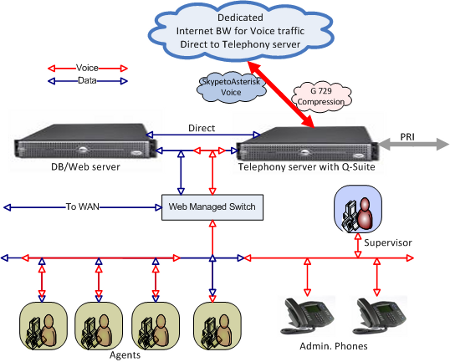What is a CRM software in detail?
CRM stands for Customer Relationship Management, which refers to a set of strategies, tools, and technologies that businesses use to manage and analyze interactions with customers throughout the customer lifecycle.
The goal of CRM is to improve customer retention and
increase customer loyalty by understanding and meeting their needs and
preferences. It involves collecting and analyzing data about customers,
automating and streamlining business processes, and using customer insights to
personalize marketing and sales efforts.
CRM can encompass a wide range of activities, from capturing customer data, to tracking interactions across multiple channels (e.g. email, phone, social media), to automating sales and marketing workflows, to generating reports and analytics. Overall, CRM helps businesses to build better relationships with their customers and improve their bottom line.
CRM software offers many benefits to businesses, including:
Improved customer engagement: By centralizing customer data and interactions, CRM software enables businesses to provide more personalized and timely customer service. This can lead to higher customer satisfaction and loyalty.
Streamlined sales processes: CRM software can automate sales tasks such as lead generation, lead nurturing, and sales forecasting. This can help sales teams to work more efficiently and close more deals.
Increased productivity: By automating tasks and providing a centralized platform for customer data, CRM software can help businesses to save time and reduce errors.
Better collaboration: CRM software can facilitate communication and collaboration between different teams, such as sales, marketing, and customer service. This can lead to better alignment and coordination across the organization.
Improved analytics: CRM software can provide businesses with valuable insights into customer behavior, such as buying patterns and preferences. This can help businesses to make data-driven decisions and improve their marketing and sales strategies.
CRM software can help businesses to improve their customer relationships, increase sales, and operate more efficiently.
There are many CRM software options available in the market, each with its own set of features and benefits. The best CRM software for a particular business will depend on factors such as budget, business needs, and size. Here are some of the most popular CRM software options:
Salesforce: Salesforce is a cloud-based CRM software that offers a range of features for sales, marketing, and customer service. It is highly customizable and can integrate with many other business applications.
HubSpot CRM: HubSpot CRM is a free, cloud-based CRM software that offers features for sales, marketing, and customer service. It is easy to use and can integrate with many other HubSpot tools.
Microsoft Dynamics 365: Microsoft Dynamics 365 is a cloud-based CRM software that offers features for sales, marketing, and customer service. It can integrate with other Microsoft applications and offers a range of customization options.
Pipedrive: Pipedrive is a cloud-based CRM software that is focused on sales. It offers features for lead management, sales forecasting, and pipeline management. It is highly visual and easy to use.
Ultimately, the best CRM software for a particular business will depend on their specific needs and budget. It is important to evaluate different options and consider factors such as features, ease of use, and integration options before making a decision.




Comments
Post a Comment